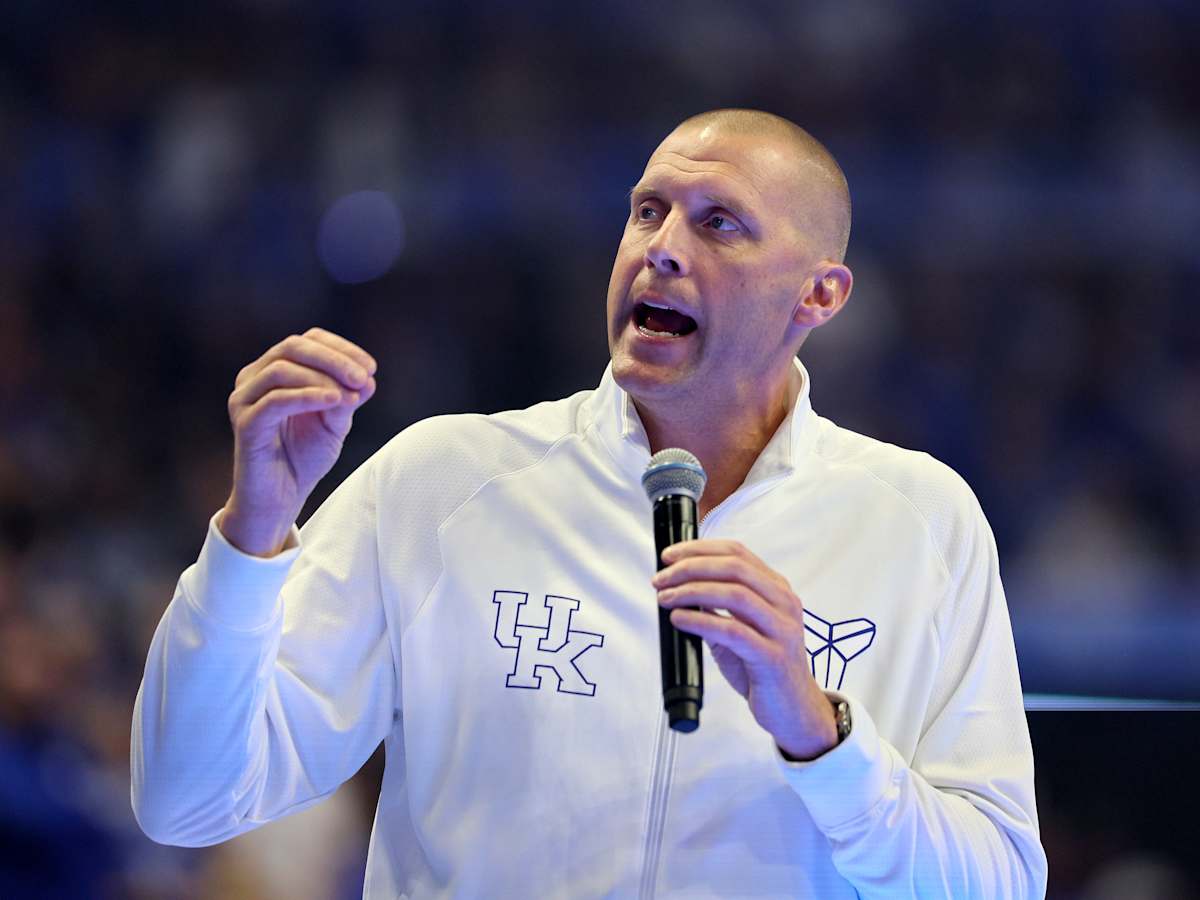Mark Pope Proposes Radical Overhaul of College Transfer System, Sends Shockwaves Through Basketball Community
In a move that’s rippling through both college hoops and the broader basketball establishment, Kentucky head coach **Mark Pope** has unveiled a bold proposal that many believe could reshape how the game operates at a foundational level. Pope says that if he had his way, the NCAA’s men’s basketball **transfer portal** would open only the day *after* the national championship, and operate within a tightly restricted five‑day window. ([SI][1])
The suggestion may sound incremental at first — merely a scheduling tweak — but the implications are potentially massive. With the transfer portal currently acting as a nearly-perpetual revolving door for players, Pope’s idea aims to bring structure, predictability, and possibly fairness back to a system many see as chaotic.

—
### The Case for a Tight Window
Pope’s rationale is simple on its surface: by opening the portal only after the season’s conclusion and compressing its duration, all parties — programs, players, agents — would have more clarity. Players would have seen an entire season, made full evaluations of their situations, and then make decisions. Coaches would know when the real “free agency” window begins and ends. As Pope phrased it:
> “I would probably move it to the day after the national championship game and make it a really tight window … make it a five‑day window.” ([SI][1])
That kind of concentrated model could reduce midseason uncertainty, prevent constant roster churning, and force decisions to be more deliberate. Some proponents believe it would also discourage rampant “on a whim” transfers born from short-term frustrations or overreaction.
—
### Reaction, Risks, and Resistance
Unsurprisingly, the reaction has been immediate and polarized. Many coaches, athletic directors, and players see merit in reigning in the endless swirl of transfers. Critics, however, warn that Pope’s plan could impinge on players’ freedom and responsiveness to changing conditions — for example, injuries, coaching changes, or academic mismatch — if they must wait until after all games are done to transfer.
Moreover, logistically, a five-day window would place massive pressure on athletic departments, compliance units, and recruiting pipelines to act quickly and efficiently. Schools with fewer staff resources might be disadvantaged. There’s also the legal and contractual complexity of NIL (Name, Image, Likeness) deals, eligibility rules, and academic timing to sort out.
Still, many observers see Pope’s proposal as a wake-up call, not just for the NCAA, but for the future of roster building in basketball. If a coach of Pope’s stature — in a blueblood program like Kentucky — is willing to publicly advocate for change, it suggests dissatisfaction with the status quo is running deep.
—
### What It Could Mean for the Future
If adopted, Pope’s idea might lead to:
* **Greater roster stability**: fewer midseason exits or “surprise” transfers.
* **More thoughtful decision‑making by players**: they’d have to live with their roster choice for an entire season before re‑evaluating.
* **Leveling the playing field**: smaller or less resourced programs might better retain players, rather than losing them halfway through a season.
* **Pushback and lawsuits**: any change that affects athlete movement or contractual flexibility is likely to draw legal scrutiny.
At its core, Pope’s proposal is more than just a timing shift — it’s a challenge to how modern college basketball thinks about player agency, team continuity, and balancing competitive equity. Whether the NCAA considers this or discards it, the fact that such ideas are being openly debated by top coaches signals that the basketball landscape is far from static.
In coming months, eyes will be on NCAA governance meetings, coaches’ conferences, and players’ associations to see whether Pope’s suggestion is dismissed as provocative commentary — or becomes the seed of sweeping reform.
